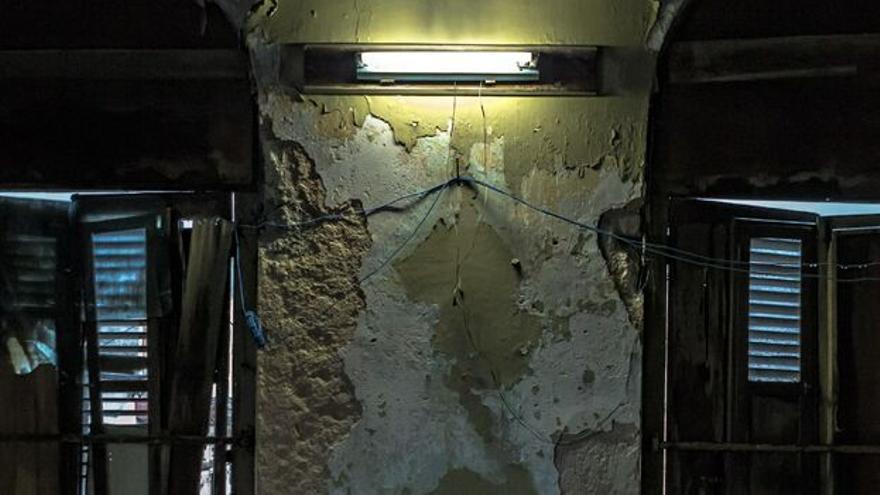
![]() 14ymedio, Havana, 24 June 2019 — SNet administrators and users are participating in a Twitter protest this Sunday to demand that Cuba’s Ministry of Communications (Micom) make changes in the new resolution that allows the network’s operation to continue. The organizers have asked that messages be sent with the hashtag #YoSoySNet (I Am SNet) this Sunday, 23 June, between 12 noon and midnight.
14ymedio, Havana, 24 June 2019 — SNet administrators and users are participating in a Twitter protest this Sunday to demand that Cuba’s Ministry of Communications (Micom) make changes in the new resolution that allows the network’s operation to continue. The organizers have asked that messages be sent with the hashtag #YoSoySNet (I Am SNet) this Sunday, 23 June, between 12 noon and midnight.
SNet, is an independent wireless network of more than 40,000 members that focuses on the exchange of offline content, video games and instant messaging.
“The time has come to fight for our space, the one in which so much effort has been invested. We have played, shared, enjoyed, several people have even ended up living together and forming families after getting to know each other in this Matrix,” they say in their call to action.
In a parallel effort, the group’s administrators continue to collect signatures throughout the country, also targeted to a solution that allows SNet to continue operating. This coming 29 July, the resolutions by which Cuba’s Ministry of Communications regulates private networks will go into force, preventing the power of the equipment from exceeding 100 milliwatts, which would result in the closure of SNet.
The followers of SNet are reluctant to accept the idea that Resolutions 98 and 99, approved by the Micom, will go into effect on the 29th with the current language.
Ernesto Nunez, one of the promoters of the Twitter protest, is aware that this initiative will not have an impact as significant as he would like but he trusts that, together, the actions will work.
“The Ministry can not ignore the avalanche of mentions on Twitter from Cuba from the last Twitter protest, the one on Saturday for #bajenlospreciosdeinternet (Lower the Prices of the Internet), and the one for SNet on Sunday, all addressed to them,” he said.
As of nine in the morning on Sunday some thirty users of the social network Twitter had begun to post messages with the hashtag #YoSoySNet, most of them also including references to the official Twitter account of the Ministry of Communications.
For an Internet user who posts under the nickname of Lumita, the official decision to implement these regulations shows that:
“No one understands the impact that #Snet has on our lives… if you have not experienced it is impossible to explain… seriously study, investigate, inform yourself… they are taking away years, dreams, money, education, time… so many people asking for this, and they say nothing?” ..@MINCOMCuba #YoSoySnet
— Lumitaa (@Lumita82) June 23, 2019
Several computer experts consulted by 14ymedio believe the limited milliwattage allowed in the new regulations taking effect on 29 July to be very harmful. It will affect the “low latency” of the links, necessary to be able to efficiently play video games or stream videos. In order to maintain a satisfactory connection between several points, the community would have to invest in the purchase of a large amount of equipment to allow a connection among several blocks of a locality.
SNet basically works with Ubiquiti brand wireless antennas — popularly known as NanoStation and also Mikrotik — most of which have an operating power from six and to 10 times the limits imposed by the upcoming legislation.
The administrators of SNet have proposed to the authorities the creation of “a special license” so that the network, as it exists today, can connect to the Etecsa’s web browsing services and continue to benefit its users.
Williams Fibla, responding to insults that have been launched by several official spokespeople against the clients of state telecommunications monopoly Etecsa in recent weeks to lower rates and improve web browsing services, insisted that those who are making this demand of Micom are not “mercenaries,” as the official spokespeople are claiming.
But even within the community of users and administrators of SNet, not all voices agree on the best methods to demand a change in the legislation.
The idea of the protest has generated criticism in one of the pages of the SNet Facebook community, some of whose administrators warn that they do not recognize any demands that are not generated by they themselves.
From the Twitter account @snet_cuba, which defends the protest, an inclusive message was sent to their colleagues:
“We will continue to fight for them too, because we understand that it is not just a pseudonym. #SNET Street Network that means the network in every corner of the country has the name it has, and we all have the same interests.”
Another administrator, who did not want to reveal his name, supports the Twitter protest. “This is how a project as good as SNET in all of Cuba is presented at the international level” and he believes that the project can become “recognized by the Cuban State. Everything is a matter of will and support on their part. That’s why we want to shout loud #YoSoySNet, so that we are heard and given a legal place in society.”
__________________________________
The 14ymedio team is committed to serious journalism that reflects the reality of deep Cuba. Thank you for joining us on this long road. We invite you to continue supporting us, but this time by becoming a member of 14ymedio. Together we can continue to transform journalism in Cuba.
